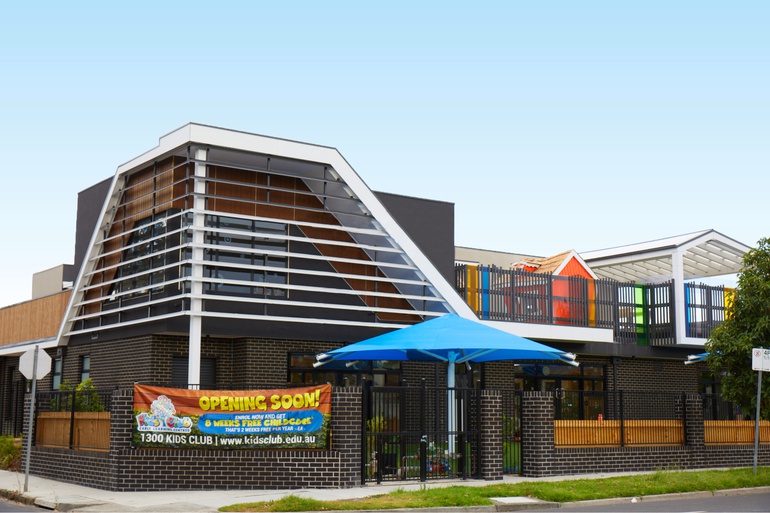Charter Hall lays the steppingstones to sustainable social infrastructure
28 Mar 2022
From a bus terminal in Brisbane to an emergency command centre in Adelaide - and hundreds of childcare centres in between - Charter Hall’s Social Infrastructure REIT (ASX:CQE) is setting the foundations for healthier, safer and more resilient places for essential workers, children and local communities.
Charter Hall’s stamp of success coming to a community near you
Charter Hall has a success story to tell about embedding Environmental Social Governance (ESG) excellence into offices, retail and industrial assets. Now, with a high scale strategy in place and motivation to match, it’s turning its attention to social infrastructure.
“We want to be the leading ESG fund in social infrastructure. We’re looking to elevate our ESG credentials across our entire social infrastructure portfolio,” says Travis Butcher, Fund Manager of the ASX-listed Charter Hall Social Infrastructure REIT.
Charter Hall has the ambition and foundations in place to support its vision. This financial year alone, it pledged $879,000 to the communities of this portfolio, established a $100,000 partnership with Foodbank to support families impacted by COVID-19, and teamed up with Goodstart Early Learning to provide 55 vulnerable families with fee-free childcare and early learning.
Charter Hall’s commitment to the ‘E’ in ESG can’t be overstated. It boasts Australia’s largest footprint of Green Star certified space across retail, office and industrial assets, supporting communities and their families with healthy, sustainable places to learn and thrive. Since 2019, Charter Hall has gone from 4.6MW solar PV installed on its rooftops, to more than ten times that figure, which sits at 46MW today.
Removing the barriers to sustainable social infrastructure
Building climate resilience in social infrastructure underpins Charter Hall’s ESG strategy and provides significant benefits to our customer tenants, investors, communities and the planet.
Analysis of Green Star certified social infrastructure assets such as community centres, libraries and civic buildings, shows an average saving of $100,000 per year in energy bills, enabling those funds to be reinvested into essential services.
Historically, Charter Hall’s social infrastructure assets have been leased with triple-net arrangements, where operations and maintenance, including upgrades, is the responsibility of tenants. This has historically been a barrier to certifications like Green Star and accessing operational performance data, however Andrew Cole, Group Head ESG Charter Hall, says a new partnership with Green Building Council of Australia (GBCA) will change this.

“Green Star will now, for the first time, provide social infrastructure with a foundational platform to apply an independent rating tool to measure and benchmark performance.
“We want to create active partnerships with our valued tenant customer and their teams, who are often on the frontline of emergencies or caring for our children,” says Andrew.
A survey from the US Green Building Council found 79% of employees would choose a job in a green-rated building over a non-green building. Research also shows green buildings boost productivity, creativity and support our overall health and wellbeing.
“People are increasingly seeking workplaces that prioritise people, communities and mitigate climate change, rather than contributing to the problem. Attracting and retaining quality workers has been a challenge for the childcare industry, but we anticipate this new rating tool will deliver positive results,” adds Travis.
Green Star benefits for frontline workers of today and leaders of tomorrow
As we navigate COVID-19 and recover from droughts, bushfires and floods, the impact of climate change is an ongoing consideration not just for workers and families, but also tenants.
“We expect the Green Star Performance tool for Social Infrastructure assets will lower operational costs for tenants and create new opportunities for them to attract talent, customers and help create resilient communities,” says Andrew.
“Air quality and environmental sustainability are important qualities parents consider when weighing up care options for children. We believe that in time, Green Star certification has the potential to give these centres an edge against their competitors,” explains Travis.
On and off-site renewable energy is a priority for the portfolio and Charter Hall Social Infrastructure. Charter Hall’s REIT has committed up to $8.6 million in solar funding across its assets, a move that Andrew says will add value for childcare providers.
“The peak operational hours of these assets are during daylight hours, so onsite renewable energy sources such as solar, offer opportunities to lower costs and mitigate climate change. We’re looking forward to working with our tenant customers to navigate the transition from fossil fuel reliant energy, while improving water conservation and reuse,” Andrew says.
Children attending these centres will also have the opportunity to learn about the importance of sustainability and how it works, before they’ve even started school.
“We will see ripple effects across communities once this new ratings tool is up and running in the next 12 to 18 months,” says Andrew.
Andrew says the appetite for sustainable and healthy properties is rapidly growing, and this is expected to continue.
“ESG principles for investing within capital markets is not a fad - it’s here to stay. In fact, demand for properties which deliver environmental and social value, alongside financial outcomes, is expected to grow as we see the need to address a changing climate increase.
“Applying these principles is not just the right thing to do, it’s a smart investment in our economies, people, communities and the planet,” says Andrew.